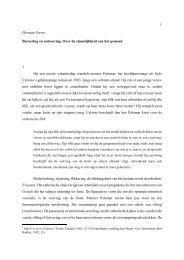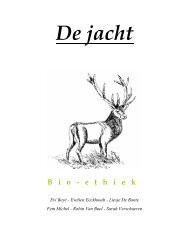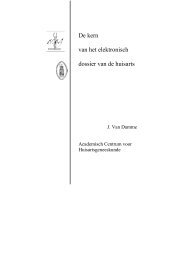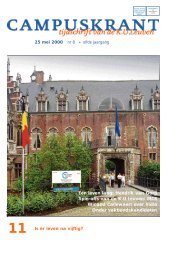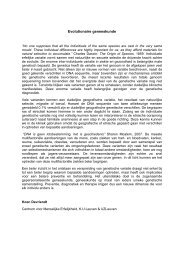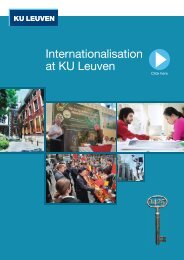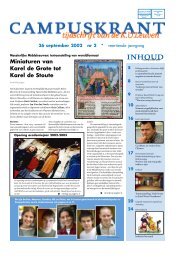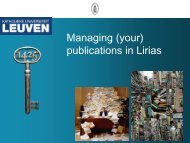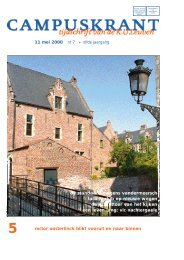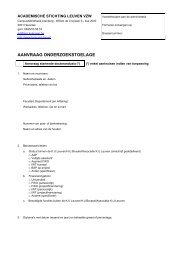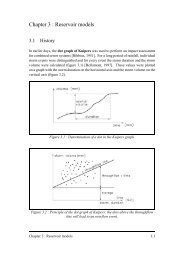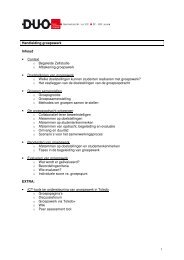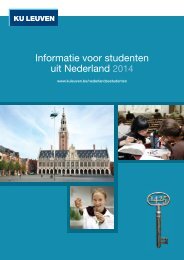EQUALITY GUIdE - KU Leuven
EQUALITY GUIdE - KU Leuven
EQUALITY GUIdE - KU Leuven
You also want an ePaper? Increase the reach of your titles
YUMPU automatically turns print PDFs into web optimized ePapers that Google loves.
Chapter 2 ! Career paths: recruitment ! promotion ! dismissal 83<br />
to explore whether the choices of the male and female students are in fact determined<br />
by different motives and factors.<br />
2.4.1.2. Career expectations<br />
The various theories on personal and social motives could also be applied to the survey’s<br />
second section ‘career expectations’. To develop the second theme, the results<br />
from the research on PhD-students 93 and the study ‘Wetenschap tussen roeping en<br />
beroep’ 94 were taken into account. That way, the students’ general expectations concerning<br />
job opportunities could be compared to their perception of a career at Ghent<br />
University. The study ‘Wetenschap tussen roeping en beroep’ noted that young researchers,<br />
though very motivated at the beginning of their career, often feel disappointed<br />
with the daily routine. The discouragement is not so much the result of the<br />
nature or content of the job, but rather of the disappointing terms of employment, the<br />
working conditions and the competitive atmosphere 95 .<br />
Both studies discuss the advantages and disadvantages of an academic career in great<br />
detail. To summarize, it may be stated that scientists choose an academic career for<br />
various reasons:<br />
! fascination for a specific research subject;<br />
! the freedom to develop an idea;<br />
! the freedom to plan one’s day (e.g. flexibility, gliding office hours, teleworking)<br />
enables a satisfying work-family combination;<br />
! the social recognition of scientific research.<br />
Potential bottlenecks, on the other hand, are:<br />
! the ambiguous interpretation of the working conditions (in contrast to other sectors);<br />
! the uncertain career perspective;<br />
! the poor coaching of PhD students;<br />
! the fierce competition between colleagues;<br />
! the monotony of the work;<br />
! the unexpected lack of freedom with respect to the research content;<br />
! the lack of sufficient office space and solid office supplies;<br />
! the publish-or-perish attitude.<br />
Both studies also examined the best way to obtain an academic career. They unanimously<br />
list the following ways: applying for a vacant position, contacting lecturers or<br />
other staff members, excelling during lectures and thus being asked to write a PhD. In<br />
the following part, it will be examined whether the conceptualization of the students of<br />
Ghent University conforms to the findings of the aforementioned studies.<br />
93<br />
94<br />
95<br />
Verlinden et al. (2005), op. cit.<br />
De Gier et al. (2001), op. cit.<br />
De Gier et al. (2001), op. cit., p. 9.



